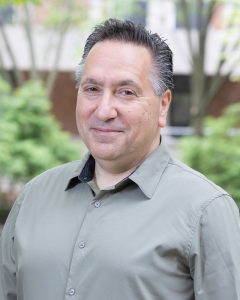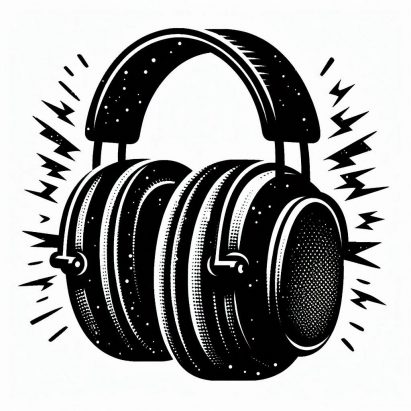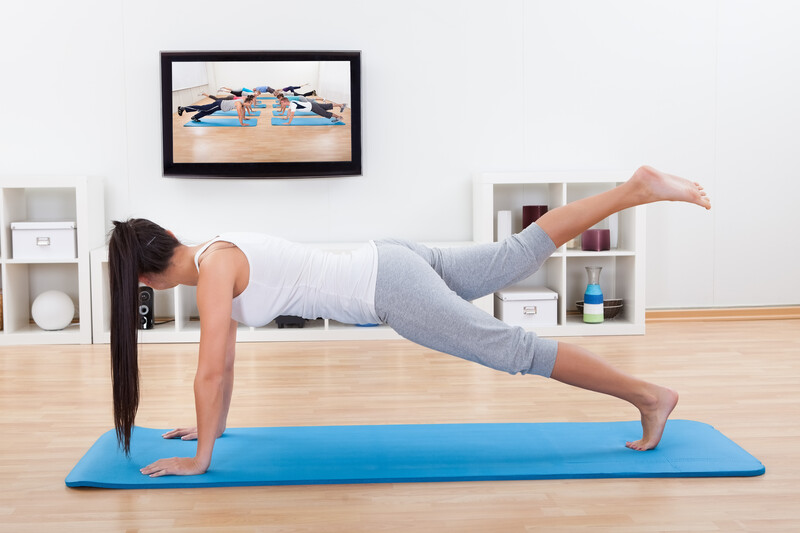By Michael Bergen, Au.D.
Special to Campus News
As a music enthusiast and an audiology professor at the City University of New York, where I have worked on busy, vibrant, and sometimes loud campuses for three decades, I realize that life can be noisy. When I’m not at work, I spend plenty of time in loud settings: on the subway, attending concerts and shows, and listening to podcasts and music.
Fortunately, there are simple ways to enjoy life’s great sounds while protecting your ears.
I’d like to share with you some experiences and expert tips that stem from my work so that you can protect your ears and avoid hearing loss in our noisy world.
As the director of the Davidow Speech Language Hearing Center at Brooklyn College and a professor in the audiology doctoral program at the CUNY Graduate Center, I collaborate with faculty members and students to promote healthy hearing habits.
Recently, two patients visited our campus clinic to address noise-related concerns. Their experiences are common and illustrate the ways, many of them very simple, to mitigate the damage of loud sounds. (I changed their names to protect their privacy.)
Rob, a professional photographer and videographer, works at dozens of celebratory events a year: weddings and holiday parties that he described as “crazy loud.” He was concerned that job-related noise levels might harm his hearing. After testing and counseling, Rob decided to have a set of custom earplugs made. These have filters that allow him to adjust the level of noise reduction depending on the expected sound levels at the venue and can cost $100 to $200 or more. At a follow-up visit, Rob shared that he simply selects the most aggressive filters so that he can experience greater levels of noise reduction; he shared that these plugs provide peace of mind while he’s working.
Juanita, a university-based marketing and media specialist who is also a college student, had been in a band for several years but stopped playing bass following the onset of tinnitus — the sensation of ringing or buzzing in the ears. She hoped to return to her love of playing music, but only if she could do so safely. I outlined some relatively simple techniques to help reduce risk, such as considering her distance to other sound sources (instruments, speakers); emphasizing low frequencies relative to other, potentially more damaging, sounds; elevating woofers and subwoofers off the floor; and wearing some type of ear protection when noise levels seem intense.
There are musician-friendly earplugs, some of which are quite inexpensive (as low as $10 to $15), and which can help to maintain natural sound characteristics of music and speech — features that are critically important to pitch identification for a musician, while limiting her risk.
We also discussed how Juanita can use a sound-level meter app to estimate noise levels, helping her to better anticipate when her auditory system might be at risk.
While it’s tempting to rely on news outlets, social media, and search engines as a primary source of health information, those resources can be fraught with misinformation and certainly aren’t tailored to individual needs.
So, how can you protect your ears in a noisy world? Consider the following:
Be Aware
Situations are riskier for your hearing when the sound is louder and prolonged. Consider this whenever you’re exposed to noise. When the sound is so loud as to be uncomfortable, you should try to reduce the intensity, use ear protection, or remove yourself from the environment when possible.
Try an App
To estimate noise levels and risk, you can refer to and use sound-level meter apps, some of which are free, such as the NIOSH Sound Level Meter app. These applications and other portable sound level-meter devices have limitations but can provide useful information about potential for noise exposure.
Consult Reliable Sources
There are a variety of evidence-based online resources to help you consider noise levels and potential impact. The American Speech-Language Hearing Association (ASHA) and the American Academy of Audiology (AAA) are excellent organizations that provide consumer information on noise and other ear-related concerns.
Talk to an Audiologist
If you experience tinnitus, hearing loss, discomfort, or fullness in your ears, you should consider contacting a licensed audiologist, an expert in hearing health care. While noise can certainly contribute to these symptoms, there are many reasons that can be identified, with intervention varying by the diagnosis and unique needs of the individual. If you have not experienced symptoms but are concerned about being at risk for hearing issues, an audiologist can help to plan strategies to limit future risk.
The good news is that with awareness and planning, you can protect your hearing and savor music, conversation, and other wonderful sounds for years to come.

Michael Bergen, Au.D. directs the Diana Rogovin Davidow Speech-Language Hearing Center at Brooklyn College and is a founding faculty member of the CUNY Graduate Center Audiology Doctoral Program.







Facebook Comments